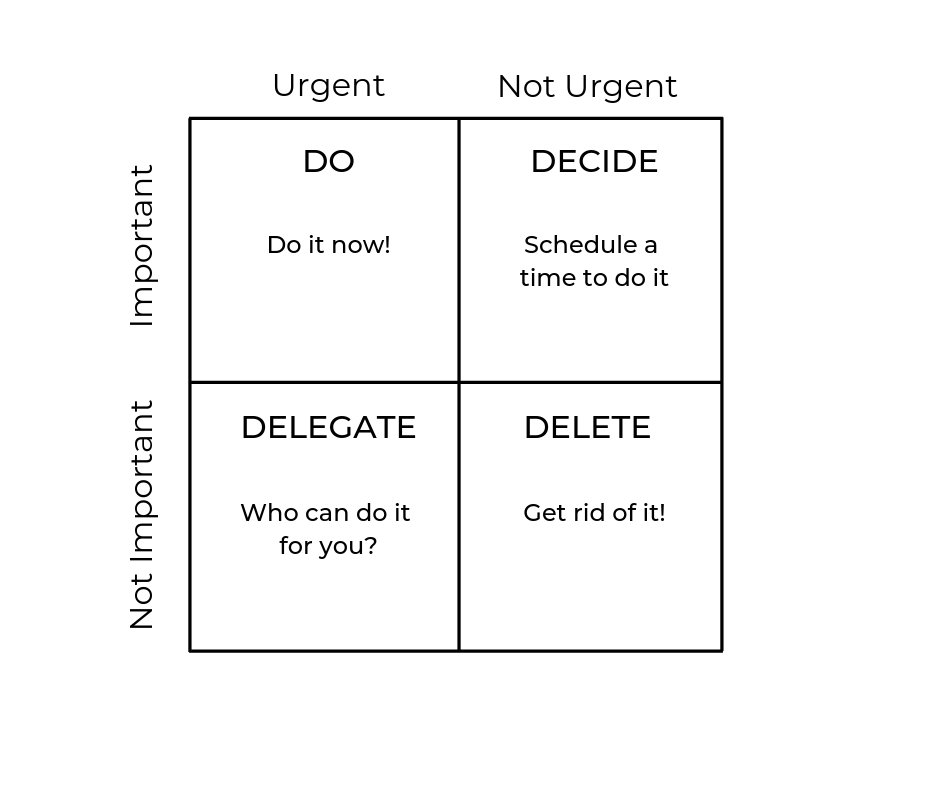10 ways to maintain your work life balance
One of the great things about being a business owner is that you answer to yourself rather than being constrained by corporate structures. Want to start an hour later, work from home, have meetings at your favourite coffee shop, take the afternoon off?
It’s your choice.
The flip side to working for yourself is that there are often blurred lines between work and home which can lead to damaged family relationships, health problems and a difficulty in switching off at the end of the day.
So what can you do to manage your time to achieve a better work life balance?
1. Play to your strengths
As a business owner (especially sole traders), you’re responsible for every aspect of running your business. You’re not just providing a bed and breakfast service, you’re also an accountant, website designer, graphic designer, customer services expert, purchasing manager, etc. Doing everything yourself, especially the things you’re not so confident with, can take longer and lead to burnout. So do the things you’re good at and outsource other aspects like the accounts, website design, copywriting and marketing.
2. Set your hours
Your friends back in the employed world have an image of you enjoying lazy mornings, doing a little yoga, lingering over breakfast and maybe getting started on work mid-morning before having an early finish to beat the rush at the gym. The reality is often very different with you still working on paperwork well into the evening. I’m guilty of this myself and often realise that it’s 8pm before I put my laptop away. The answer is to put a little structure into your day and give yourself set hours to work, maybe setting an alarm on your phone to remind you of the end of the working day.
3. Work out your most productive time
Ok, this is where your employed friends might have a point. If you’re not bound to set times by your customers, you have some flexibility over the hours you set for yourself. If you’re super productive in the morning, give yourself the tasks which require the most concentration during that time. If it takes you a while to come round after waking, start your working day mid-morning and work a little later into the evening. The key is to structure work around your most productive times.
4. Prioritise your work
When your To Do List is getting longer by the day, it’s easy to lose yourself in overwhelm and just firefight your way out. However, you may be losing the urgent and important jobs in favour of ticking off some of those little jobs which will make your list seem a little shorter. By using the 4 categories below, you can begin to prioritise, ditch those things which aren’t going to add any value and outsource some of your work to other people.
5. Make time for yourself
Give yourself some regular breaks during the day - and at least a lunch break. It’s well known that stopping and resting your brain can actually help you to become more focused, clearer and more productive. This article on Phsychology Today explains more.
6. Use time tracking tools
Accountants, solicitors, virtual assistants, etc are well versed in using time tracking tools so that they know how much to bill their clients. However, a time tracking tool can be used to help you understand just how you are spending the hours you have available (and whether you are wasting more time than expected on certain activities). Time tracking your jobs can also help with pricing jobs in the future as you will have built up a good understanding of how long a particular task takes. If you Google ‘time tracking tools’ a variety of options will come up. I use Toggl following recommendations from several online business groups, but there are plenty of other choices available.
7. Manage your meetings
When I first started freelancing, I would happily travel for meetings. I saw it as a way to get out of the house and one of the perks of working for myself. Fast forward a few years and I’ve now realised that all the driving around is wasted time. There are times when you want a face to face discussion with a client, so consider alternative methods such as meeting at a destination half way between yourself and your client or using video calling. Options include Skype, Apple FaceTime, FB Messenger and WhatsApp.
8. Look after your body and mind
It’s tempting to work flat out from waking to sleeping, but making time to exercise will keep you more productive in the longterm. Whether it’s a run before work, a walk at lunchtime in the fresh air to break your day, or a training session at the gym after work, it’s always worth scheduling exercise into your day. Looking after your mind is also important and I know of many people who now use mediation as an essential part of their working day. You could either visit a yoga or mediation class in person, or find an app with guided mediations - one of my favourites is Headspace.
9. Unplug
In my early days of blogging, I can remember writing about the benefits of switching off your phone, unplugging from technology and resetting the button. For me, there’s nothing better than a night in a tent deep in the hills to help me reset my body clock. In today’s digital age our phones, along with all our social media apps, are always with us. I dread to think how many hours a week we lose to those few minutes spent here and there, quickly checking our social media. The link between mobile phones/tablets and sleep deprivation has been widely studied over the years and my personal experience of disturbed sleep if I’m glued to my mobile screen all evening certainly backs up the findings. So switch off your phone and unplug from the day to give your eyes and your brain a rest.
10. Have a holiday
Schedule your work in advance, let your clients have plenty of warning, and give yourself a break every so often. A couple of weeks is great, but even a long weekend away will give you a well earned rest. Ironically, some of my best ideas come to me while I’m away from the day to day routine and ‘unplugging’ from modern life.
If your business has been taking over your life, hopefully one or more of these tips will help to bring things back into balance again.
If not, take a look at how I can help you with some of that extra work and drop me an email for an informal chat.
Jacquie Budd is a content writer and strategist, helping businesses, charities and not for profits to connect with their customers.
Get in touch to chat about working together.

